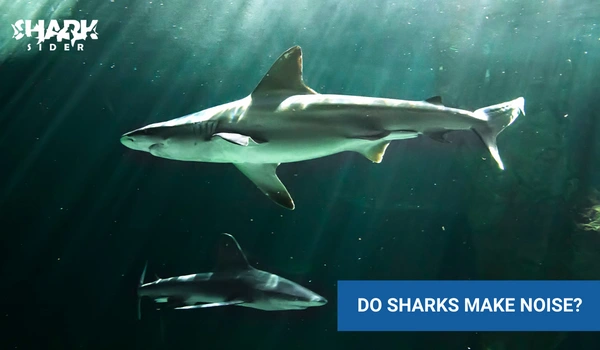Have you ever been curious as to whether sharks make noise? While they often get a bad rap in pop culture, there’s much to be explored underneath the surface. Sharks are largely misunderstood creatures and through studying their behavior we can uncover many more mysteries about them – even if it means going beyond the constraints of basic sight. In this blog post, we’ll take an in-depth dive into the question: do sharks make noise? We’ll explore existing research on shark sound production, what mysteries remain that researchers have yet to solve, and most importantly why understanding these complexities is important for conservation efforts. So get ready to go beneath the surface with us as we dive deep into trying to determine – do sharks make noise?
Do sharks make sounds?
Much of the research into shark sound production has focused on their mating calls. Many sharks produce low-frequency, slow pulses known as “drumming” to attract and court potential mates. This drumming produces a sound that is often referred to as a “boom-boom-boom” and can be heard from miles away depending on the species. However, researchers have also found evidence of other types of sounds being produced by sharks including clicks, whistles, bleats, and croaks which are thought to serve different purposes such as communication between individuals and navigation.
Despite our growing understanding of shark sound production, there are still many mysteries that remain for researchers to unravel. Current observations suggest that certain species of sharks are more vocal than others but there is still much to learn about the purpose and function of sound production in different species. Additionally, it’s not yet known if certain sounds serve as warning signals or whether they’re used for other purposes such as locating prey.
Understanding shark sound production is important for a number of reasons. For starters, by better understanding how different species communicate, scientists can gain insight into the social behavior of sharks which helps inform conservation efforts. Further research could also lead to new ways to study and protect marine ecosystems from the effects of climate change and human activities. Lastly, understanding shark sound production could help improve our ability to track them in order to better understand their movements and behavior in the wild.
Do sharks make noise when attacked?
This is an important question as some scientists believe that sharks may use sound as a defensive mechanism, emitting a low-frequency pulse to deter predators or scare away potential threats. While there is still much research to be done in this area, it’s clear that studying the sounds produced by sharks can help us gain deeper insights into their behavior and ecology.
Do sharks actually roar?

No, it is not possible for sharks to make a sound loud enough to be heard over long distances. This is because their vocal tracts are much smaller than those of other mammals and therefore can only produce low-frequency noises. However, further research could help us better understand the communication habits of these mysterious creatures.
Conclusion
So do sharks make noise? The answer appears to be yes! Sharks produce an array of fascinating sounds for various reasons such as mating and navigation. By exploring these mysterious vocalizations, we may be able to uncover even more secrets about our underwater friends which could prove useful in helping protect them and other marine species. So the next time you go to the beach, take some time to listen to the curious noises that these remarkable animals make beneath the surface. You just might hear something unexpected!

